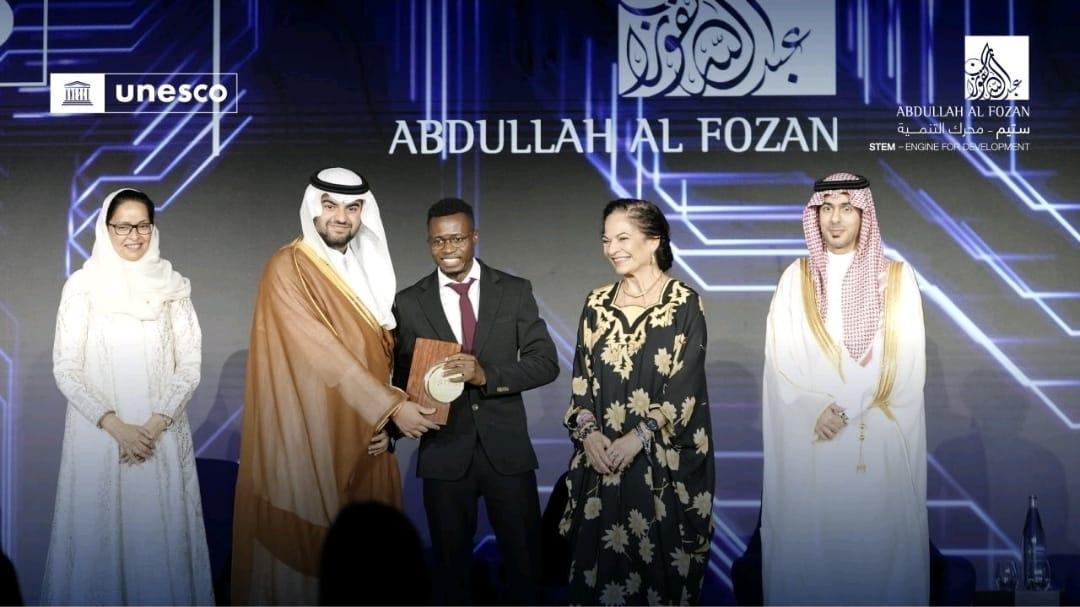Africa-Press – Namibia. Namibian scientist Ndaudika Mulundileni (34) has been recognised on the global stage.
He won the Engineering, Science and Technology category of the UNESCO Al-Fozan International Prize in Paris, France, last Friday.
The prestigious award, which carries a prize of US$50 000, honours individuals and institutions that have made outstanding contributions to science, technology, engineering, and mathematics (STEM).
Mulundileni received the accolade for his leadership of the Mindsinaction STEAM Centre, a Namibian initiative dedicated to empowering youth through integrated STEM education, which includes science, technology, engineering, arts and mathematics.
“We feel honoured because this award highlights our journey. We have exposed over 5 000 learners to integrated STEM activities, including children from the most remote areas of Namibia – 60% of whom are girls – and under-resourced schools, where some students experience their first encounter with a computer,” Mulundileni said.
As CEO and co-founder of the Mindsinaction STEAM Centre, he emphasises that integrated STEM teaching goes beyond traditional methods, showing students how mathematics and science concepts connect with technology and engineering.
“This approach allows students to see how a concept learnt in maths or physics relates to coding or improves the quality of a prototype. It is life-changing, encourages learning, fosters exploration, and enhances creativity in solving real-world challenges,” he explained.
Mulundileni’s passion for STEM began in high school when he and his friend Andreas Leonard participated in a science fair.
“We challenged ourselves to develop a sustainable, eco-friendly method of making bricks for our community. That project enhanced our problem-solving skills and planted a seed that eventually shaped who we are today,” he recalled.
The Mindsinaction STEAM Centre, established in 2018, aims to expose Namibian children to STEM education from an early age through experiential learning.
Mulundileni plans to expand access to more schools, particularly in rural and underserved areas, using mobile labs and teacher training initiatives.
He also intends to strengthen partnerships with government, industry and international organisations to scale resources and create more opportunities for learners.
“Beyond Namibia, our vision is to share our model across Africa, adapting it to local contexts so that young people gain practical, future-ready skills. By nurturing a culture of innovation and entrepreneurship, we hope to empower the next generation of problem-solvers capable of tackling local and global challenges,” he concluded.
For More News And Analysis About Namibia Follow Africa-Press






